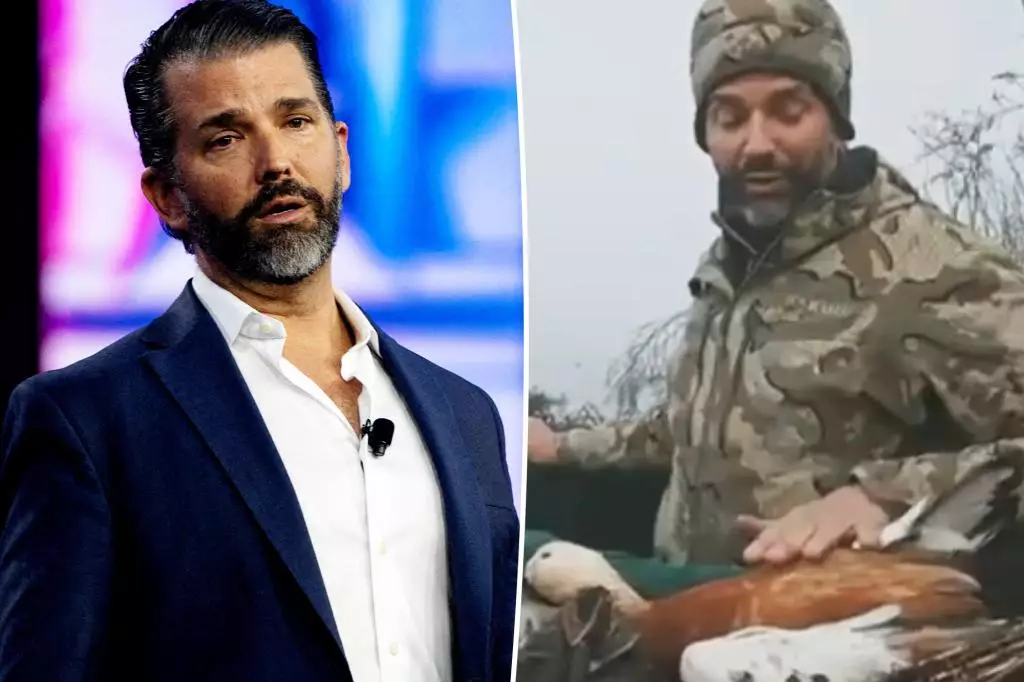Donald Trump Jr.’s recent duck hunting excursion in Italy has sparked significant controversy and initiated an investigation by the Venice Prosecutor’s Office. This inquiry, prompted by a complaint from Green politician Andrea Zanoni, highlights the ongoing conflict between hunting practices and wildlife conservation efforts. While Trump Jr. himself is not explicitly named in the official complaint, the incident drew attention after a video featuring the hunt was published on his website, Field Ethos. The footage depicted various ducks, including a striking duck that may be classified as a Ruddy Shelduck—a species noted for its scarcity in Europe.
Legal and Ethical Implications
The complaint emphasizes that possession of a protected species, regardless of its manner of acquisition, violates conservation laws. Zanoni’s assertion that “the law also applies to anyone found in possession of a protected species” raises critical ethical questions about hunting and wildlife preservation. The response from Trump Jr.’s spokesperson emphasized their adherence to legal requirements, stating that all necessary permits were obtained, and that hunting took place in a location frequented by multiple hunting groups. However, this reassurances do little to undermine the severity of the allegations, particularly when a potentially endangered species is involved.
Massimo Buconi, president of the Italian Hunting Federation, added fuel to the fire by confirming the classification of the duck in question, stating that “at a glance it looks like a Ruddy Shelduck” and that hunting such species is strictly prohibited in both Europe and Italy. This insight draws attention to the delicate balance between hunting as a tradition and the growing global emphasis on wildlife conservation. The public’s reaction to the video and subsequent investigation has been mixed, with animal rights advocates rallying against the incident while some defenders of hunting argue the importance of sustainable practices.
A Pattern of Controversy
This incident is not Trump Jr.’s first encounter with controversy related to hunting. In 2019, he faced backlash for allegedly killing a rare sheep species in Mongolia, a situation he navigated by obtaining a retroactive permit—a response that raised further questions about ethical hunting practices. This pattern of behavior indicates a larger trend in which high-profile figures find themselves at the intersection of recreation and conservation, often clashing with activists advocating for animals and their habitats.
As the investigation unfolds, there are potential legal ramifications that could arise not only for Trump Jr. but for larger hunting practices within Italy. The implications extend beyond individual actions and raise broader concerns about preservation laws and the responsibility of hunters. The ongoing dialogue about hunting ethics and legality will likely intensify as the findings of the Venice Prosecutor’s Office become public. What remains clear is that the conversation surrounding wildlife conservation, particularly regarding high-profile figures, is far from settled, indicating that future hunting endeavors will be scrutinized more closely than ever before.


Leave a Reply